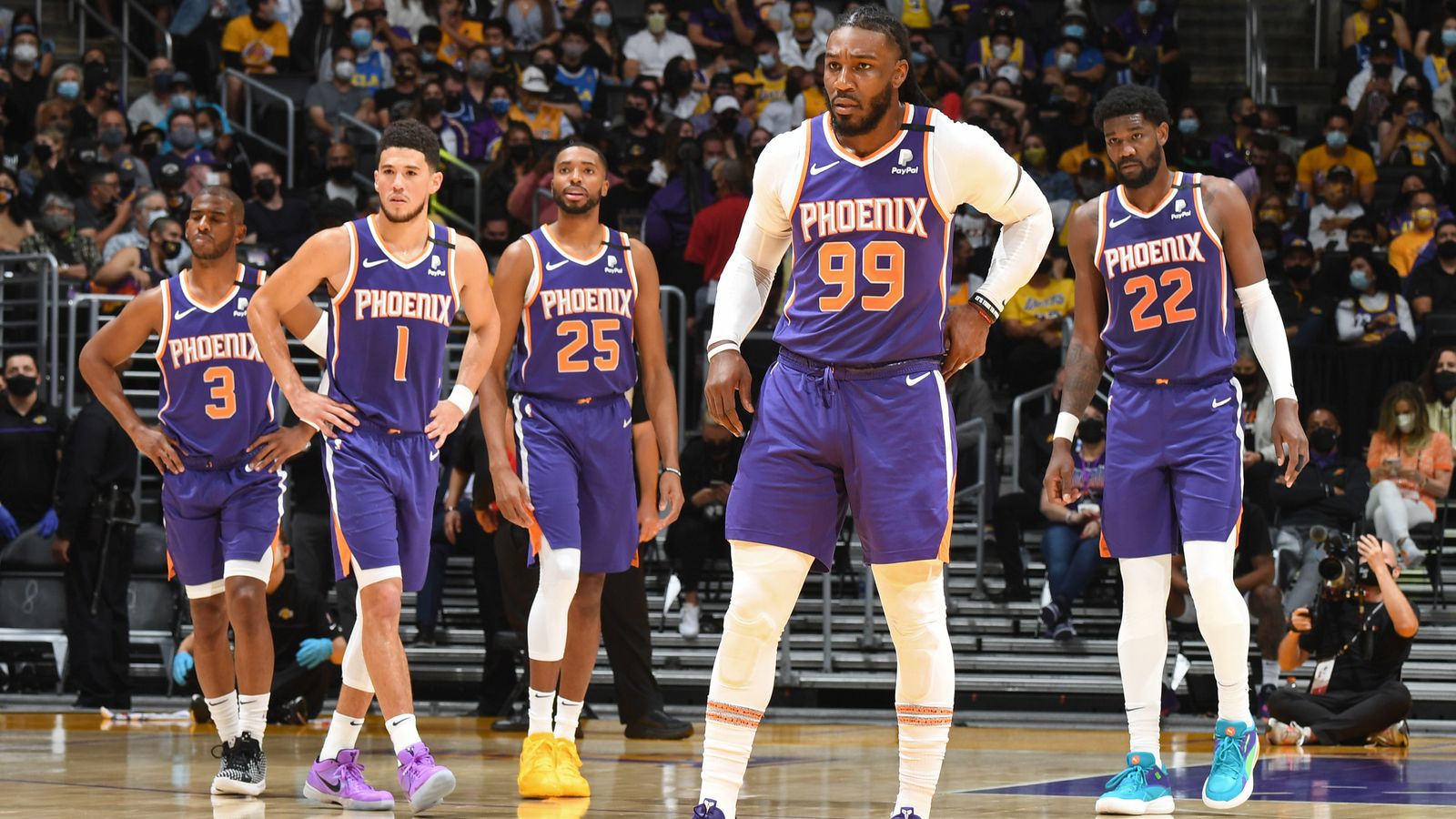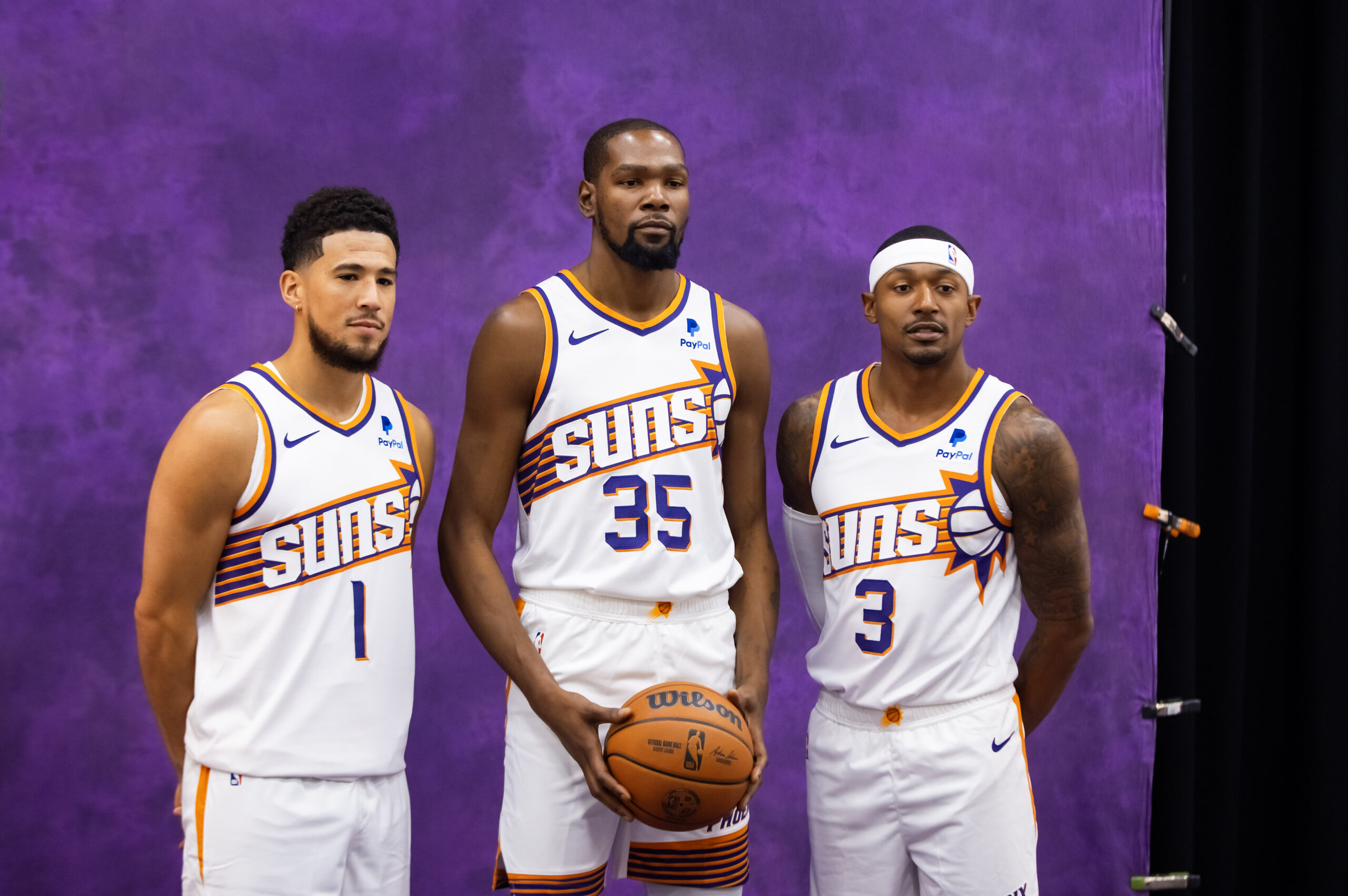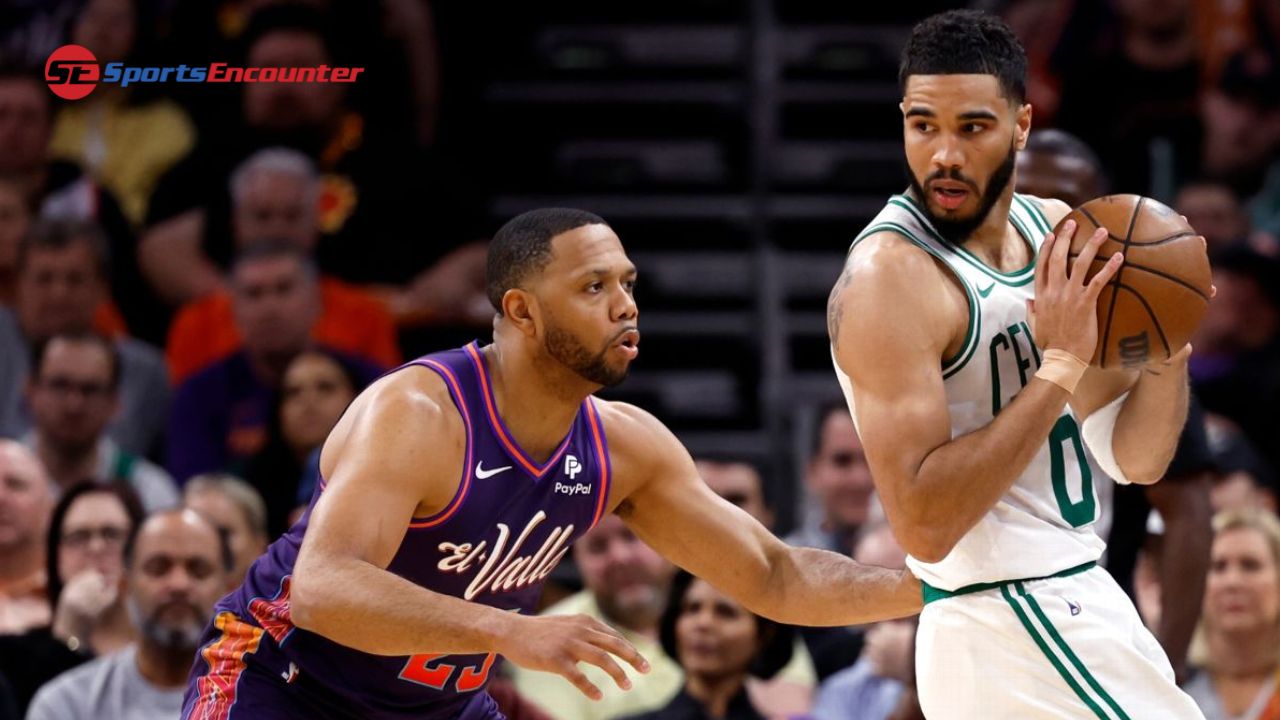In a league where ambition can often clash with the hard reality of financial regulations, the Phoenix Suns find themselves at the heart of a narrative that’s as much about numbers as it is about basketball. The recent comments by NBA Commissioner Adam Silver towards Suns owner Mat Ishbia have cast a spotlight on the delicate balance teams must strike in their quest for supremacy.
The occasion was marked by Phoenix’s selection as the host city for the 2027 NBA All-Star Weekend, a significant nod to the franchise’s growing prominence. However, amidst the celebrations, Commissioner Silver’s words served as a subtle reminder of the fiscal responsibilities that come with assembling a powerhouse roster.
Silver lauded Ishbia for his commitment to elevating the Suns within the NBA’s competitive echelon. Yet, he underscored the importance of adhering to the league’s financial regulations, particularly in light of the Suns’ aggressive player acquisitions. “It’s a balance,” Silver remarked, emphasizing the league’s aim to foster robust competition among its 30 teams while ensuring financial fairness.
The Suns, driven by Ishbia’s vision, have indeed embarked on a spending spree, but not without consequence. The team’s payroll currently exceeds the NBA’s second tax apron, a mechanism introduced in the latest collective bargaining agreement to maintain competitive parity. This apron, set at $182.5 million, acts as a financial red line, beyond which teams face strict spending limits.

The Cost of Competitiveness
For the Suns, the pursuit of their first NBA championship has led them to surpass this threshold, with their total salary obligations standing at an eye-watering $191.8 million. The stakes will only rise in the next season, with star player Devin Booker’s supermax deal, alongside significant commitments to Kevin Durant and Bradley Beal, further ballooning the payroll.

Despite these financial constraints, Ishbia’s resolve remains unwavering. The Suns owner has expressed a steadfast determination to retain key players, including Grayson Allen and Royce O’Neale, both of whom are vital to the team’s championship aspirations. “We’re trying to win,” Ishbia stated, underscoring his strategy to balance financial prudence with the goal of assembling the best team possible.
This approach, however, comes with its challenges. The Suns’ financial maneuvering places them in uncharted territory, navigating the narrow path between championship glory and the league’s fiscal mandates. As they endeavor to keep their core group intact, the Suns are a testament to the complex interplay of ambition, strategy, and regulation that defines the modern NBA landscape.
Celtics soaked up Phoenix sun on day off, then passed self-imposed test against Phoenix Suns https://t.co/iT1OOfP5px
— Christopher (@Sug8rbe8r) March 10, 2024
Conclusion: A High-Stakes Game Off the Court
As the Phoenix Suns set their sights on the pinnacle of achievement, they do so against the backdrop of a league ever vigilant of its financial equilibrium. The words of Commissioner Silver to Mat Ishbia serve as a reminder of the intricate dance between pursuing excellence and adhering to the rules of the game, a balance that the Suns must master if they are to realize their dreams of an NBA title.
In this high-stakes game, both on and off the court, the Suns’ journey encapsulates the essence of professional sports in the 21st century: a relentless quest for greatness, bounded by the realities of economic constraints. As they march towards their goal, the Suns not only contend with their rivals but also with the ledger, a duality that will define their legacy in the annals of NBA history.

